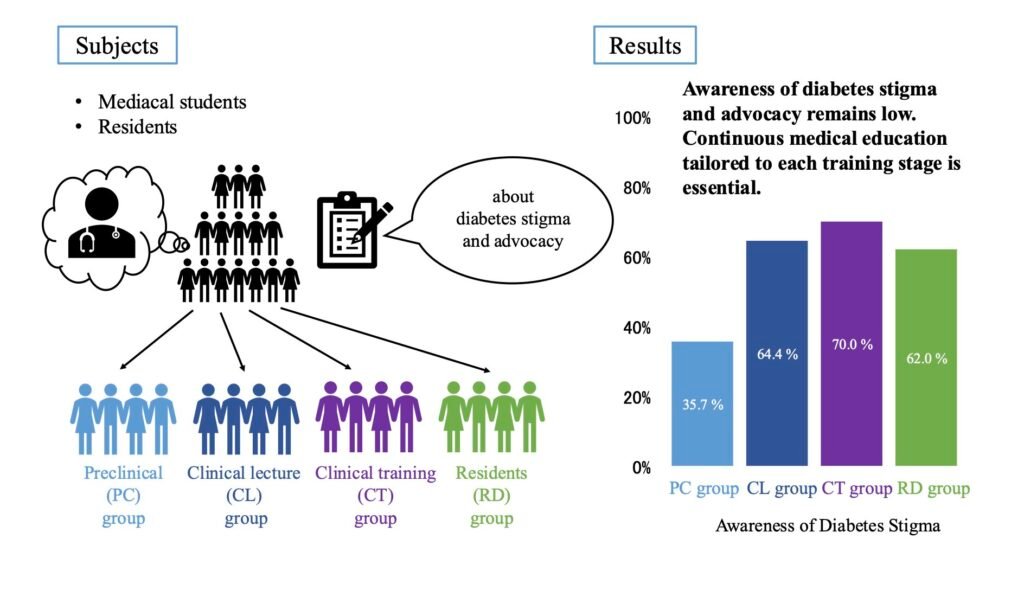Diabetes is a prevalent health condition affecting nearly 10% of the global adult population and causing almost two million deaths per year. Despite its widespread impact, individuals with diabetes often face stigma and discrimination. This stigma can even be perpetuated by healthcare providers, who may hold misconceptions about the disease and those affected by it.
A recent study conducted by researchers at Kyoto University aimed to assess the awareness of diabetes stigma among medical students and residents in Japan. The study, published in the journal Diabetes Research and Clinical Practice, involved a questionnaire-based survey of 921 participants from Kyoto University and St Marianna University School of Medicine. The results revealed that while some awareness of diabetes stigma and advocacy existed among the participants, there was still significant room for improvement.
Interestingly, awareness of diabetes stigma and advocacy increased with the training stage, indicating that education plays a crucial role in combating misconceptions. However, the study also found that many medical students and residents held misconceptions about diabetes, such as believing it is always a genetic disease or that individuals with diabetes have a shorter life expectancy. These misconceptions were more prevalent among residents compared to medical students.
The research team emphasized the importance of accurate knowledge and education in addressing diabetes stigma. They plan to continue assessing awareness and conduct a follow-up survey among medical students to track changes in perception over time. The ultimate goal is to create a medical education curriculum that helps dispel myths and stereotypes surrounding diabetes.
By shedding light on the awareness of diabetes stigma among future physicians, this study highlights the need for ongoing education and training to combat misconceptions and discrimination. Through continued research and curriculum development, the hope is to create a world free from diabetes stigma and promote a more inclusive and understanding healthcare environment.


